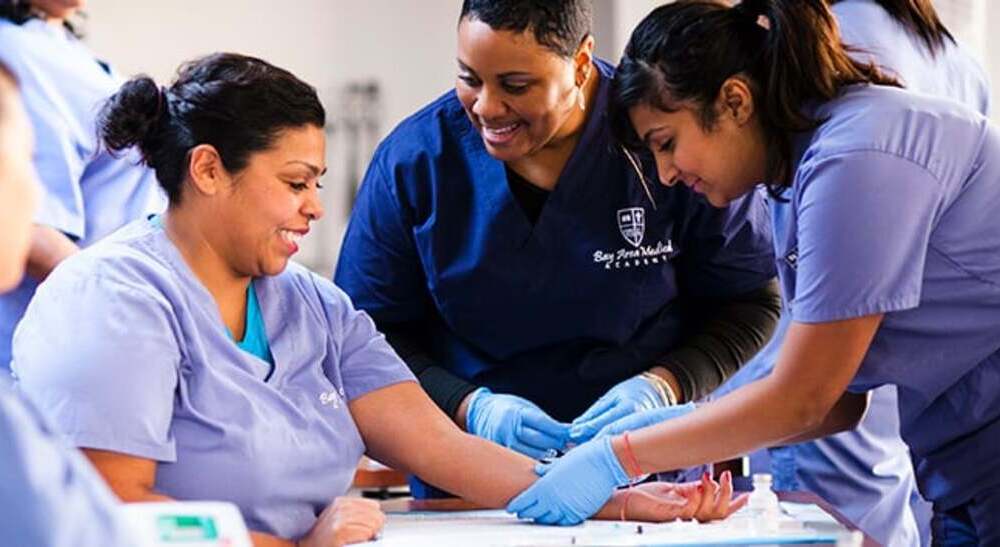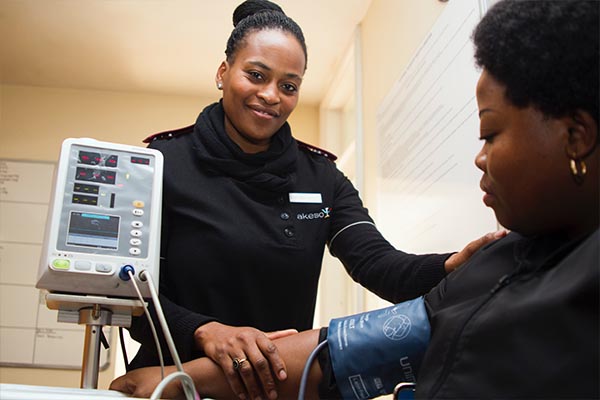Top-Rated Northeast Medical Institute Phlebotomy Training Stamford: Hands-On Knowing Experience
Top-Rated Northeast Medical Institute Phlebotomy Training Stamford: Hands-On Knowing Experience
Blog Article
Critical Factors to Think About When Picking one of the most Suitable Medical College Educational Program for You
Picking the most fitting clinical institution educational program is an essential choice that can considerably affect your academic trip and future job path. As striving clinical experts, the selection of curriculum must straighten with your personal understanding style and profession desires.
Personal Understanding Style

Clinical institutions that supply diverse mentor approaches and resources can fit numerous learning styles, cultivating a comprehensive and dynamic educational atmosphere. Inevitably, understanding personal discovering choices empowers trainees to make enlightened choices regarding their medical education, establishing a strong structure for their future careers in health care.
Job Purposes Positioning

In addition, aligning profession objectives with the clinical institution curriculum can additionally boost motivation and engagement throughout the instructional journey. When students see the straight significance of their coursework to their future career, they are extra most likely to remain committed and focused to their researches. Consequently, when choosing a clinical institution educational program, it is vital to thoroughly consider just how well it aligns with one's occupation objectives to make sure an effective and satisfying specialist path.
Mentor Approaches
Taking into consideration the positioning of job objectives with the selected clinical school curriculum, an exam of the teaching approaches used ends up being critical in shaping the discovering experience. The performance of a clinical school curriculum greatly counts on the teaching methods used by the establishment. Various teaching techniques, such as talks, tiny team conversations, problem-based learning, simulation-based training, and hands-on medical experience, can substantially impact how well trainees preserve and realize information.
Lectures are a conventional however still frequently made use of method for supplying web content to a huge group of students efficiently. Small seminar foster collaboration, important thinking, and communication skills among students. Problem-based learning urges energetic engagement, self-directed understanding, and analytic capabilities. Simulation-based training permits pupils to exercise scientific abilities in a controlled environment before connecting with actual individuals. Hands-on scientific experience uses a direct understanding of client care and clinical techniques.
When picking a clinical college educational program, striving students must think about the teaching methods employed to ensure that their discovering preferences and toughness straighten with the academic approach of the organization.
Curriculum Adaptability
When assessing clinical school programs, analyzing the degree of curriculum adaptability is necessary for prospective trainees looking for a tailored instructional experience. Curriculum versatility describes the degree to which pupils can personalize their knowing paths within the clinical institution curriculum. An educational program that provides flexibility enables students to seek their rate of interests, emphasis on areas where they require a lot more assistance, and involve in discovering experiences that Check This Out line up with their profession objectives.

Potential medical pupils should consider just how a medical college's curriculum adaptability lines up with their discovering preferences, profession ambitions, and personal goals. By choosing a program that uses the ideal balance of structure and flexibility, trainees can maximize their instructional experience and prepare themselves for effective careers in medicine.
Clinical Exposure Opportunities
Exploring the sensible application of clinical understanding, clinical exposure chances play a critical role in shaping a comprehensive clinical education. These possibilities give trainees with important hands-on experience in real health care setups, permitting them to bridge the gap between theory and technique. When taking into consideration clinical institution curricula, the quality and amount of scientific exposure have to be very carefully assessed.
Effective scientific exposure should offer a varied series of experiences throughout numerous specializeds, making certain that pupils are revealed to different clinical scenarios and client demographics. Exposure to outpatient facilities, inpatient wards, medical movie theaters, and emergency departments can aid pupils create an all-around understanding of various elements of health care delivery. In addition, opportunities for community-based treatment and communications with underserved populations can promote a deeper gratitude for the social components of health and wellness.
Furthermore, the presence of helpful professors and coaches throughout these professional experiences can substantially improve the uni courses learning procedure. Professors advice and constructive comments can aid students assess their clinical encounters, determine areas for renovation, and boost their decision-making abilities and scientific skills (Northeast Medical Institute CNA Classes Near me Stamford). In general, robust medical direct exposure opportunities are crucial for preparing future doctors to provide high quality individual treatment successfully
Final Thought
To conclude, when choosing a medical institution educational program, it is important to consider your individual learning design, positioning with job purposes, educating methodologies, educational program versatility, and clinical direct exposure opportunities. These variables play an essential function in determining one of the most ideal program for your educational and professional growth. Ensure to thoroughly examine each facet to make a notified decision that will best support your development in the clinical field.
Comprehending one's individual click here to find out more understanding style is important when choosing a medical institution educational program. By determining one's learning style early on, aspiring medical trainees can tactically choose an educational program that caters to their toughness, ultimately improving their knowing experience and academic success.
When assessing clinical institution programs, examining the degree of educational program adaptability is vital for prospective trainees looking for a tailored academic experience. Educational program flexibility refers to the degree to which pupils can customize their discovering courses within the clinical school curriculum.In verdict, when picking a clinical school curriculum, it is vital to consider your individual learning style, positioning with profession objectives, teaching methodologies, curriculum flexibility, and clinical exposure opportunities.
Report this page